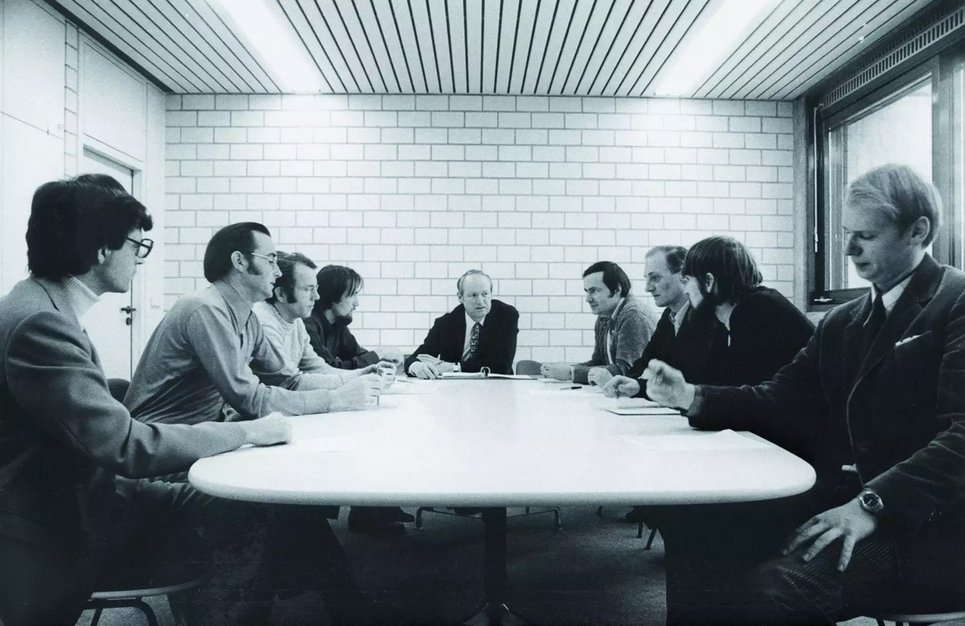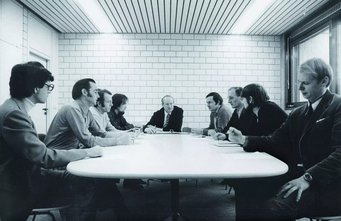Professor Dr. Josef Solf (1934-2023)
On December 31, 2023, Josef Solf passed away at his last place of work in Jena. He had previously worked at the Max Planck Institute for Astronomy in Heidelberg for 25 years. Here, Josef Solf made a decisive contribution to the establishment of the Calar Alto Observatory.

In April 1969, he joined the recently founded institute, which at the time was still located at the Heidelberg-Königstuhl State Observatory. Having just completed his doctorate at the Max Planck Institute for Nuclear Physics, he had acquired knowledge of nuclear spectroscopy and the at that time new digital data processing. This enabled him to quickly switch to planning the large telescopes and scientific instrumentation for the new optical observatory to be built. He concentrated on the design of the complex spectrographic instrumentation and led the development of a total of five spectrographs for a wide variety of applications. One of his lasting achievements was the creation of the high-resolution Coude spectrograph for the 2.2 m telescope in a novel, optical fast mirror constellation. He had prepared this through study visits to major American observatories and numerous negotiations with the leading manufacturers of large optical gratings and state-of-the-art astronomical instrumentation. He was also involved in the development of sensors for the cameras of the spectrographs, which were developing rapidly at the time, from photographic plates to image intensifiers and diode arrays, right through to CCDs.
With the commissioning and scientific testing of all the instruments and telescopes on Calar Alto, Josef Solf himself became an enthusiastic observational astronomer. He broke new scientific ground with his spectroscopic studies of bipolar nebulae. Through his extensive observations, he was able to prove their physical nature as a phase in the formation of stars.
When the astronomical research landscape in the new federal states was restructured after German reunification, Josef Solf saw an opportunity to return to his home state of Thuringia. The large academy observatory in Tautenburg became the Thuringian State Observatory and advertised the position for a director. Josef Solf applied and won the competition against a dozen competitors. This was accompanied by his appointment as Professor of Astronomy at the University of Jena in 1994. He immediately launched a modernization programme for Tautenburg and recruited young astronomers, including graduates from Heidelberg. New scientific observation programs were not limited to Tautenburg, but were extended to Calar Alto and the European Southern Observatory. After five successful years, he retired in 1999.
Josef Solf was born on February 5, 1934 in Worbis in Eichsfeld. Even before his relative late entry into physics, he had belonged to the Jesuit order in his youth and studied theology and philosophy. He was certain that he would live to a very old age, as Catholic priests statistically had the highest life expectancy - surpassed only by astronomers. Josef Solf also provided an explanation for the longevity of men in these two professions: they spend most of their lives in heaven and not on earth.
Josef Solf died on New Year's Eve 2023, shortly before reaching the age of 90.
Dietrich Lemke
